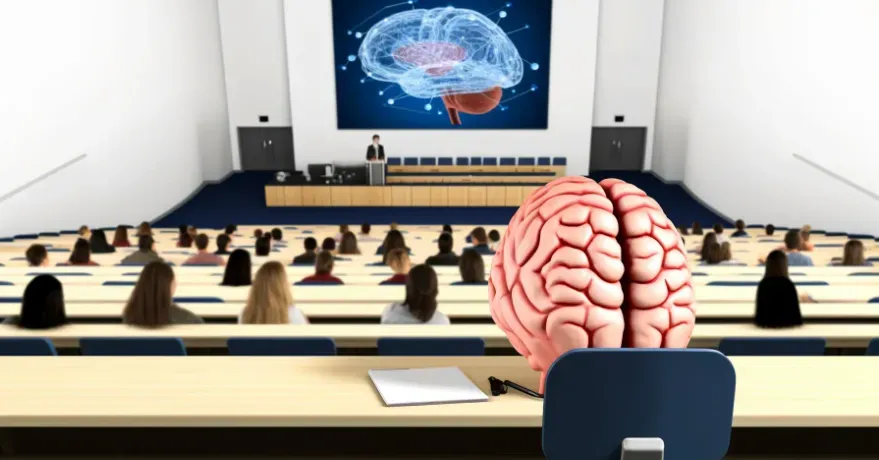How to Cultivate Well-being as a Skill: Insights from Neuroscience
Introduction to Well-being as a Learnable Skill
Like mastering a musical instrument, developing well-being is an intricate process that demands consistent practice. The comparison is poignant; both require dedication, patience, and time to see noticeable improvements. This perspective encourages us to approach mental health not just as a state to be desired but as a skill to be cultivated, empowering us with the agency to influence our own psychological landscape.
The Role of Continuous Practice
The concept of well-being as a skill emphasizes the importance of continuous practice. Just as musicians rehearse daily to perfect their craft, individuals can engage in specific practices aimed at enhancing their mental well-being. This consistent effort leads to gradual yet tangible changes, reinforcing the idea that persistence is key in the journey towards a more fulfilling life.
The Neuroscientific Foundations of Well-being
The Brain's Plasticity: Key to Lasting Change
Neuroplasticity, or the brain's ability to adapt and reorganize itself, is central to understanding how well-being can be developed as a skill. Recent studies indicate that certain practices, such as mindfulness and compassion meditation, can strengthen neural pathways that contribute to increased resilience and a more positive outlook on life. This plasticity underscores the brain’s remarkable capacity to change and adapt in response to our actions and experiences.
Scientific Research Supporting Neural Adaptability
Supporting this, neuroscience has provided compelling evidence that interventions designed to enhance well-being can have measurable effects on the brain. These changes are not just fleeting; they can be sustained over time, providing a neurobiological substrate for long-term transformation. This research not only validates the effectiveness of these practices but also offers hope that change is possible at any stage of life.
The Four Pillars of Well-being

1. Resilience: Bouncing Back from Adversity
Resilience, defined as the rapidity with which one recovers from adversity, is a crucial component of well-being. Neuroscientific research has pinpointed specific brain circuits related to how quickly an individual can return to baseline after a stressor. People with quicker recovery times are generally found to maintain higher levels of well-being and are better protected against the negative impacts of stress.
- Key brain areas involved in resilience:
- Prefrontal cortex
- Amygdala
Neurological Underpinnings of Resilience
Delving deeper, the neurological underpinnings of resilience include certain neural circuits that evidence plasticity, meaning they can be strengthened over time with practice. Studies involving mindfulness practices have shown that systematic training can enhance these resilience-related circuits, albeit it requires substantial practice to see significant changes, underscoring the commitment needed to foster resilience.
2. Positive Outlook: Seeing Goodness and Possibility
A positive outlook—the ability to see the good in others and to savor positive experiences—is another foundational pillar of well-being. This attribute is supported by specific neural circuits that can be enhanced through practices like compassion and loving-kindness meditation. Interestingly, these circuits respond relatively quickly to such interventions, suggesting that even short-term practices can improve one's outlook.
- Effective practices to enhance a positive outlook:
- Compassion meditation
- Loving-kindness meditation
Brain Circuits Linked to Positive Outlook
The brain circuits involved in fostering a positive outlook show greater and more sustained activation in individuals who regularly engage in practices that cultivate these positive emotions. For those experiencing conditions like depression, interventions aimed at strengthening these circuits can provide significant relief by enabling more persistent activation of positive emotional responses.
3. Attention: The Gateway to a Focused Mind
Attention plays a pivotal role in our overall mental well-being. A focused mind is less prone to wandering and more capable of deriving satisfaction from the present moment. Enhancing attention through mindfulness and other cognitive training can decrease distractibility and increase one's ability to engage fully with the task or interaction at hand.
- Strategies to improve attention:
- Mindfulness training
- Cognitive behavioral techniques
Training Attention for Improved Well-being
Cultivating attention is akin to exercising a muscle; the more it is practiced, the stronger and more reliable it becomes. Historical and contemporary research suggests that improving this faculty of mind is not just beneficial for personal happiness but is also crucial for achieving higher effectiveness in various aspects of life, including work and interpersonal relationships.
4. Generosity: Well-being through Altruism
Generosity, the act of giving to others without expectation of return, has been shown to activate brain circuits that contribute to well-being. These neural pathways, when engaged, produce feelings of joy and satisfaction that are more enduring than those arising from self-serving actions. Engaging in altruistic behaviors not only benefits the recipient but also significantly enhances the giver's mental health.
- Benefits of generosity:
- Increased feelings of happiness
- Strengthened social connections
Neuroscientific Evidence Supporting Generosity
The neuroscience of generosity reveals that altruistic behavior activates parts of the brain associated with positive emotions and social connection. These areas show increased activation during generous acts, suggesting a neural basis for the sense of fulfillment often reported by those who frequently engage in helping others. This enduring activation underscores the potential of generosity to enhance personal well-being in a profound way.
Integrating Well-being into Everyday Life
Practical Tips for Training the Mind
Incorporating the skills of well-being into daily life requires intention and practice. Simple techniques such as setting aside time for mindfulness meditation, actively practicing gratitude, or engaging in regular acts of kindness can be effective ways to enhance well-being. The key is consistency and the willingness to make these practices part of one's routine.
The Role of Intentional Practice in Daily Routines
Building these practices into everyday routines can help ensure they become second nature. For example, integrating brief mindfulness exercises into the morning routine or using breaks at work for short gratitude reflections can significantly impact one’s mental state over time. These small, consistent actions accumulate, leading to substantial improvements in overall well-being.
Conclusion: Well-being as a Skill — A Journey Worth Undertaking
Summarizing the Neuroscientific Insights
The journey to well-being, much like any skill, requires knowledge, practice, and dedication. The insights provided by neuroscience not only illuminate the path but also offer practical strategies for enhancing mental health. Recognizing the brain’s capacity for change, we can approach well-being with the confidence that our efforts will lead to meaningful and lasting improvements.
The Enduring Impact of Developing Well-being Skills
As we continue to cultivate these skills, the benefits extend beyond individual happiness to influence broader aspects of life, including relationships, productivity, and overall quality of life. Embracing well-being as a skill empowers us to take charge of our mental health and create a more fulfilling existence.
References and Further Reading
To deepen understanding and expand on the practices mentioned, further reading and resources are available. Engaging with a wide range of materials can enhance one’s approach and commitment to developing well-being as a skill, providing diverse perspectives and additional tools for personal growth.



